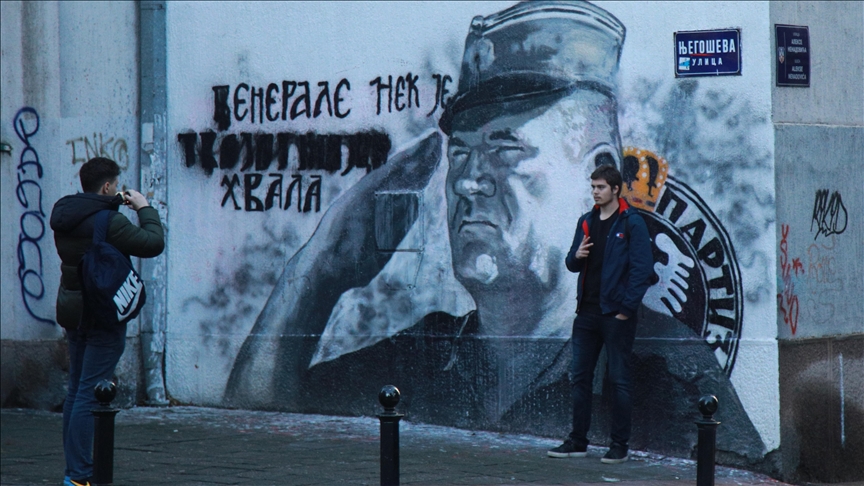The UN Human Rights Office on Friday expressed concern after police in Belgrade this week stepped in to protect a mural of convicted war criminal Ratko Mladic painted on a building in the city center of the Serbian capital.
- The mural in Belgrade is not an isolated incident - Liz Throssell, spokeswoman for UN High Commissioner for Human Rights, said at a UN press conference in Geneva.
- Posters, graffiti, other materials and statements praising war criminals are found in other parts of Serbia, as well as in various towns in Bosnia and Herzegovina, Croatia, Montenegro, and elsewhere in the region. -
Symbols glorifying convicted war criminals should have no place in the public space, said Throssell.
Such symbols are concerning given the recent rise in hate speech and denial of genocide and other atrocity crimes in the Western Balkans – "developments that highlight the failure to address the past."
The UN rights office official said the situation in Bosnia-Herzegovina is "particularly worrying," where such trends are deepening divisions.
- We call on the authorities in the region to abide by their international human rights obligations to ensure the rights to truth, justice, and reparation, as well as to adopt measures to prevent recurrence and to promote further reconciliation efforts - said Throssell.
The rights office called on the authorities to condemn and refrain from all forms of hate speech and incitement to violence and to ensure the perpetrators of such acts are held accountable.
Mladić was once Europe's most wanted man after his role in the 1992-1995 Bosnian War.
He was the commander of the Army of Republika Srpska, established in Bosnia-Herzegovina at the beginning of the country's civil war amid the breakup of Yugoslavia.
Mladić and the forces under his command were linked to the genocide committed in Bosnia, particularly in Srebrenica, Europe's worst atrocity since the World War II, after Serb forces overran an enclave that was supposed to be under the protection of UN peacekeepers.
After the end of the war with the 1995 Dayton Accords, Mladić became a fugitive for more than a decade.
